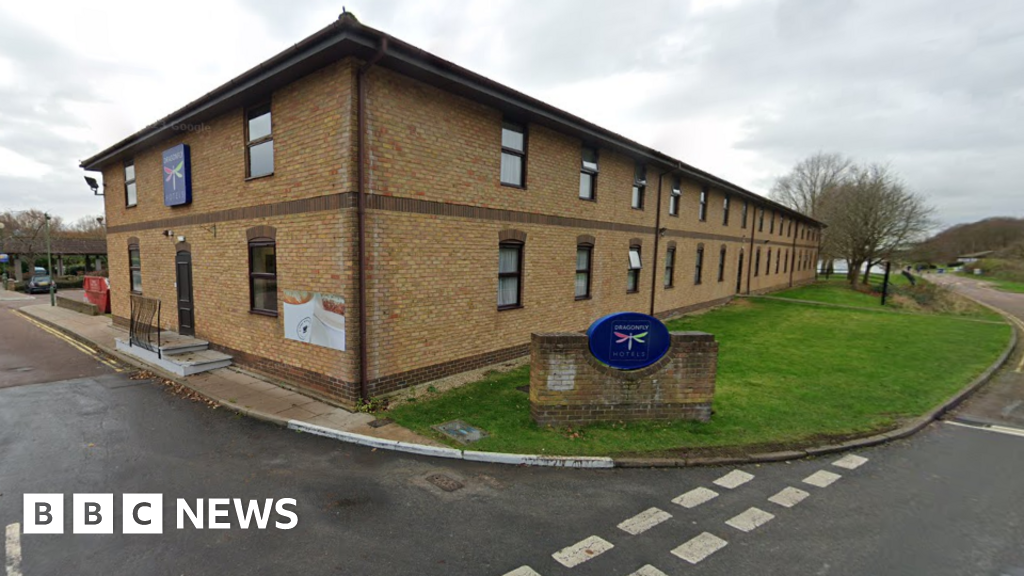ARTICLE AD BOX
London elites "haven't really understood all of the problems" faced by people in Grimsby and Cleethorpes, says Michael Gove
Plans to fulfil Boris Johnson's vow to "level up" neglected parts of the UK have been announced by the government.
The long-awaited strategy, unveiled by Levelling Up Secretary Michael Gove, will take until 2030 to complete and involve all government departments.
It aims to close the gap between rich and poor parts of the country by updating infrastructure and changing the way power and money is distributed.
But Labour said it contained no new money and little fresh thinking.
The prime minister put "levelling up" at the heart of the Conservatives' 2019 general election-winning manifesto.
The government has launched a number of schemes aimed at boosting regional development - but has faced claims the policy lacks definition.
At the heart of the strategy is a plan to create more regional mayors, such as existing posts like Labour's Andy Burnham in Greater Manchester, or the Conservative's Andy Street in the West Midlands and Ben Houchen in Tees Valley.
Every part of England would have access to "London-style" powers and a mayor if they want it, according to the levelling-up strategy.
Mr Gove's plans would bring all existing initiatives together into 12 "national missions" and set up a system for measuring progress.
Among the 12 missions, to be completed by 2030, are promises to:
- Eliminate illiteracy and innumeracy by refocusing education spending on the most disadvantaged parts of the country
- Bring the rest of the country's public transport up to London standards
- Provide access to 5G broadband for the "large majority" of households
- Create more first-time homebuyers in all areas, and reduce the number of "non-decent rented homes" by 50%
The problem that the government seeks to solve with its 'Levelling Up' agenda is clear - the fact that the UK is one of the world's most geographically unequal major economies - and that has worsened over the past three decades.
The pledges on spending in the white paper are rather limited, reflecting the fiscal situation.
There are new commitments beyond the existing Spending Review, for what the PM describes as his "defining mission".
But where a mission such as this has been achieved, for example in post-unification Germany, there have been massive fiscal transfers from rich regions to poor ones approaching one and a half trillion pounds, or £70bn a year.
The stark fact is that GDP per capita in some east German regions now exceeds that in some northern English regions.
The challenge is whether entrenched patterns of economic geography can really be changed without footing a very significant bill?
Many of Mr Gove's missions are existing government policies, with funds already allocated to them, but he says they will be enshrined in law for the first time.
Most of the policies in the White Paper apply to England only, but the government insists levelling-up is a UK-wide initiative and it wishes to work with the devolved administrations in Scotland, Wales and Northern Island to achieve this.
The plan includes £100m of new government funding for "innovation accelerators" to boost research and development in Greater Manchester, the West Midlands and Glasgow City-Region.
Mr Gove said: "For decades, too many communities have been overlooked and undervalued. As some areas have flourished, others have been left in a cycle of decline. The UK has been like a jet firing on only one engine.
"Levelling up and this White Paper are about ending this historic injustice and calling time on the postcode lottery."
Image source, Reuters
Image caption,Labour's Lisa Nandy called for more ambitious plans for boosting regions
Labour has set out its own five-point plan for levelling up, including better broadband for towns and villages, action to tackle anti-social behaviour in city centres, and more affordable housing.
For Labour, shadow levelling-up secretary Lisa Nandy said: "Ministers have had two-and-a-half years to get this right and all we been given is more slogans and strategies, with few new ideas.
"Boris Johnson's answer to our communities calling for change is to shuffle the deckchairs - new government structures, recycled pots of money and a small refund on the money this government have taken from us. This is not what we were promised. We deserve far more ambition than this."
Meanwhile, a report by the National Audit Office, which scrutinises public spending, has criticised the government for having a "limited" understanding of what has worked well when setting up its programme for regional economic growth.
It said that, by November last year, it had committed £11bn through policies to support the regeneration of towns and communities across the UK for the period from 2020-1 to 2025-6.
NAO head Gareth Davies said: "The Department for Levelling Up, Housing and Communities has not consistently evaluated its past interventions to stimulate local economies, so it doesn't know whether billions of pounds of public spending has had the impact intended.
"With its focus on levelling up, it is vital that the department puts robust evaluation arrangements in place for its new schemes to promote local growth."

 2 years ago
44
2 years ago
44








 English (US)
English (US)